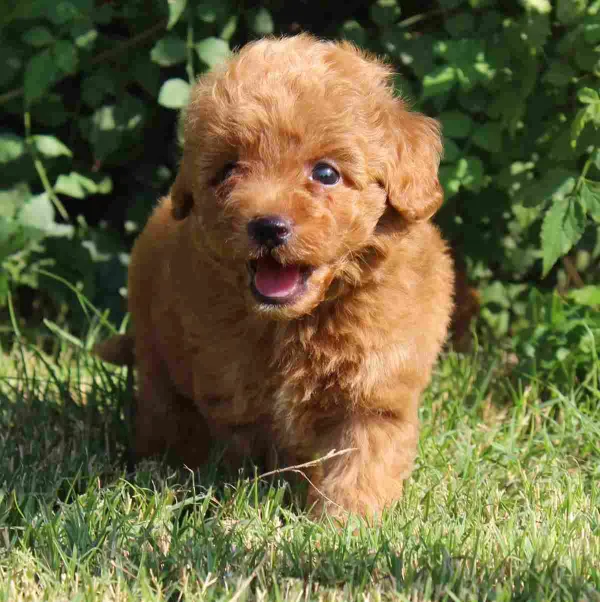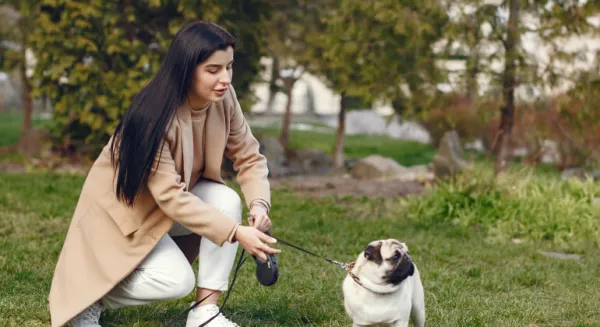Embracing tiny paws comes with big responsibilities. Mini dogs bring joy, companionship, and a wagging tail to families. Before you bring one home, it's essential to understand what that entails. This guide walks you through everything from choosing the right breed to acclimating your new furry friend.
The Allure of Miniature Dogs: Popularity and Trends
Miniature dog breeds are in high demand. Their small size makes them ideal for apartment living, and their playful nature captivates many. Popular breeds, like Chihuahuas and Pomeranians, have developed large followings on social media. Whether you want a cuddly companion or a spunky friend, there’s a mini dog out there for you.
Preparing Your Home: Essential Steps Before Arrival
Before your mini dog arrives, prepare your living space. Create a cozy spot with a bed and some toys. Make sure you have food and water bowls ready, too. Clean up any hazards that could harm your new pup. A little preparation goes a long way in ensuring a smooth transition.
Setting Realistic Expectations: Understanding Mini Dog Personalities
Every dog has a unique personality. Some mini dogs are bold while others may be shy. Research the breed's common traits before making your decision. Understanding their behavior can help set your expectations and prepare you for the joys and challenges of dog ownership.
Choosing the Right Mini Dog Breed
Researching Breeds: Temperament, Size, and Health Considerations
The first step in choosing a mini dog breed is thorough research. Look for information on temperament, size, and health issues. Some breeds may require more exercise or grooming than others. Understanding these factors can help you select a breed that fits well with your lifestyle.
Meeting Your Potential Pup: Important Questions to Ask
When you find a potential pup, meet them in person. Ask questions about their history, health checks, and parental traits. Observing how they interact can also give you insight into their temperament. This step is vital to ensure a good match.
Puppy-Proofing Your Home and Providing a Safe Space
Creating a Safe Haven: Designing a Dedicated Dog Area
Once you've chosen your dog, create a safe and inviting area. Set up a space with a bed, some toys, and a designated potty area. This zone helps your pup feel secure as they adjust to their new home.
Removing Hazards: Identifying and Eliminating Potential Dangers
Mini dogs are curious and can easily get into trouble. Remove hazards like small objects, toxic plants, and electrical cords. Use baby gates to block off hazardous areas. A little effort keeps your pup safe and healthy.
Investing in Essential Supplies: Beds, Toys, Food and Water Bowls
Gather essential supplies before your mini dog arrives. Invest in quality food, a comfy bed, and engaging toys. Choose food and water bowls that are the right size for your pup. Having everything ready shows you’re committed and prepared.
Acclimating Your Mini Dog to Their New Home
The First 24 Hours: A Gentle Introduction
The first day is crucial for your new mini dog. Allow them to explore at their own pace. Keep the environment calm and welcoming. Let them sniff around and choose their favorite spots. Patience is key during this adjustment period.
Establishing a Routine: Feeding, Potty Training, and Playtime
Establish a daily routine to help your pup feel secure. Set consistent times for feeding, potty breaks, and playtime. Routines create a sense of normalcy for your new friend and set the stage for good behavior and training.
Gradual Introductions: Pets, Children, and Visitors
Introduce family members and other pets slowly. Monitor each meeting to ensure all parties feel comfortable. Gradual introductions prevent overwhelming your mini dog and help build positive interactions.
Mini Dog-Specific Health and Grooming Needs
Veterinary Care: Regular Checkups and Preventative Measures
Visit the vet regularly for checkups and vaccinations. Mini dogs can be prone to certain health issues, so preventative care is essential. Discuss diet and lifestyle options with your vet for optimal health.
Nutrition: Choosing the Right Food for Optimal Health
Choosing the right food significantly influences your pup's health. Look for high-quality brands specifically formulated for small breeds. Proper nutrition supports growth, energy levels, and overall well-being.
Grooming: Essential Tips for Maintaining a Healthy Coat
Grooming is important, especially for long-haired mini dogs. Regular brushing prevents matting and keeps their coat healthy. Schedule grooming sessions based on your dog’s breed needs.
Training and Socialization for Your Tiny Companion
Basic Obedience Training: Potty Training, Crate Training, and Leash Training
Start training early with basic commands. Potty training is essential, and crate training can help with this process. Leash training should also begin as soon as possible, teaching your dog to walk politely.
Socialization: Exposure to People, Dogs, and Environments
Socialize your mini dog from a young age. Expose them to various environments, people, and other dogs. Good socialization prevents fear and behavioral issues later on.
Addressing Behavioral Issues: Seeking Professional Help When Needed
If your mini dog develops behavioral issues, don’t hesitate to ask for help. A professional trainer can provide guidance tailored to your pet's needs. Early intervention leads to a happier life for both of you.





